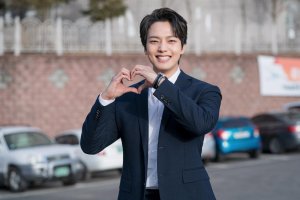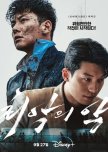
Overall good, but annoyed by the ending
To be honest I was disappointed with the ending, specifically Junmo's coldness towards Eui Jung. I think kdramas really tend to think that it's heroic for the main lead to leave a relationship when things get too difficult, aka sacrificing his love to keep overall peace. But it's just annoying, literally, some couples' therapy and PTSD work would've benefited both Junmo and Eui Jung, rather than them splitting. My ideal would've been that the investigation, and arrests, are wrapped up in episode 7, then the remaining episodes are Junmo and Eui Jung reeling with the aftermath of the events, arguing and communicating. Instead, we get a rushed ending because the drama drags out the arrests until the end. It felt too predictable, and because of that I'm only giving this drama an average rating, it could've been a very amazing drama had it gone into the nuances of the emotional state of their marriage.On the flip side, this drama did have some great parts to it. The acting was downright amazing, so many scenes are captivating too and express how Junmo's character goes from innocent to traumatized. My favourite scene is when Junmo is over a body, fighting with the other gang, and he looks up towards Eui Jung all covered in blood. It's such a perfect angle to show how much this operation has changed him. I loved the cast so much as each actor did an amazing job portraying the characters.
Surprisingly my favourite aspect of the drama was how they portrayed the forced cheating aspect of the investigation. It's the first time I've seen a drama effectively pull off cheating in a way that makes sense. What was amazing was despite the cheating both Junmo and Eui Jung's love remains strong. The kiss scene between Junmo & Haeyrun is so uncomfortable in a way that shows just how much Junmo loves Eui Jung. Both of them didn't waver and it made for an entertaining side plot because we're left to interpret the true intentions of the characters. I strongly believe that both cops didn't waver, which is why I get frustrated at their separation at the end, it just feels like, after everything they went through.. what was the point if they weren't going to end up together again? Why did they, Jumno and Eui Jung, struggle so much? I blame Junmo for this because again the trauma makes him cold and distant...but again some serious therapy would've helped him heal, instead, he just suppresses the pain. I don't think he fell for Haeyrun, to me his feelings are more like a concerned friend. He realizes that Haeyrun is being used by her family and that she isn't entirely evil, so he wants to help her. I don't think he actually caught feelings for her.
Overall I enjoyed the drama but had hoped for a more throughout ending that would've dealt with the emotional side/psyche of Jumno & Eui Jung.

Suicide Shaming and Very Base Level Takes on Mental Health-Lost opportunity for deeper disscussions
This whole show rubbed me the wrong way and it wasn't until I finished that I realized why--suicide shaming. There was an opportunity to really delve into mental health and suicide but instead, the story focuses on a surface-level approach of "suicide affects those around you, more than the victim themselves" INSTEAD of focusing on the actually environment that led up to the suicide, the main character is instead punished and shamed for his actions. I'm not here to argue that suicide is a good option, of course, it isn't, but to completely gloss over just how tough the main character's life was, does such a disservice.It was such a typical and predictable ending, I was hoping they would've had a more nuanced take- but I guess not. The only thing that made this show good was the acting, and honestly, it feels wasted on a surface-level plot, the actors were seriously so amazing in each role. The shifts from their 'real' character, to the one that the main character takes on are very well done.
The whole premise was a good one, but executed poorly.
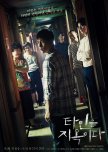
One of the Best Psychological Thrillers
It’s been a while since I was left grinning from ear-to-ear after watching a drama, when this show ended I was left with the dread of the ending, and the excitement of having found a show that made me want to instantly write a positive review.This drama takes an important stance on economic privilege within a society that is heavily reliant on societal class. The commentary made is that poverty has a direct correlation to your environment and eliminates your option to leave a negative environment. There is this mindset that people, of financial privilege, may have where they believe that poverty is a choice and that many people choose to stay in a negative environment because it is ‘easy’. This may come in the form of unsolicited advice such as: Living in a place with poor facilities? Just Move. Finding it tough to earn more money? Then work harder. The drama highlights the ignorance that financially privileged people take when trying to empathize with someone who is in poverty. The plot also displays the direct correlation between one’s financial ability and the limited options they have when choosing their environment. Many people who are privileged like to pretend that they have struggled and that they have ‘moved on’ from their previous poverty state. The juxtaposition between Jong-Woo and Jae-Ho displays the lack of understanding an individual displays when they haven’t lived through difficulty. As his boss and ‘friend’ Jae-Ho attempts to undermine Jong-Woo’s experience regarding the difficulty living in the Eden Residence. Jae-ho is quick to reply with his own, fake sympathy, experience about having once lived in a communal residence (which we later find out was a lie anyways). Jae-Ho, from his financially privileged background, found it necessary to overshadow Jong-Woo’s struggles. Jae-Ho couldn’t even begin to empathize with Jong Woo because he lacked not only empathy but first hand-experience with anything remotely similar to Jong Woo’s situation.
Poverty plays an essential role in understanding the backdrop of this show’s plot and how Jong-Woo remains stuck in the Eden Residence even after he realizes that there is something fishy. There is an extreme financial strain on Jong-Woo to earn money. He is one of the breadwinners for his single mom and disabled brother. The Eden Residence ends up being the cheapest place, at about $100 (115,000 Won) per month for rent. Many times throughout the show he clearly identifies that the people living there are strange, weird, and potential criminals, but every time he calculates his income he can’t afford anything over $100 per month. There is a gap within society, where people in poverty remain stuck in their negative environment and when they seek help either face more hardship or are not believed, as is the case with Jong-Woo.
There are three levels of Hell that Jong-Woo faces. The first is that he becomes physically stuck in this residence, he has no money to move out. What happens next is that he is failed by his friends and colleagues, which becomes the second level of hell--disconnect from a support system. Jong-Woo, many times throughout the show, tries to convince the people around him that the Eden Residence is dangerous. When his girlfriend, colleagues, and boss undermine and diminish his experience, it backs him up into a frustrating situation. The skepticism is worst when his girlfriend tells him that he “is being too sensitive” about the residents. At these two levels, Jong-Woo no longer has a physical safe space or an emotional one. His descent into mental instability continues as he reaches the third level of hell. Despite his concerns having been ignored by those around him, Jong-Woo continues to believe in himself and seeks help from the Police. He is once again viewed with skepticism and asked to bring evidence. There is only one police officer who believes him, but she too struggles to initially find evidence. Now stuck financially, emotionally, physically, and locally Jong-Woo becomes truly isolated, left alone with his fears and truth about Eden Residence. These three descents into Hell are the commentary on poverty and the depths that it can push someone to when they become physically stuck in a negative environment and have no means of escaping.
Many people underestimate how debilitating poverty can be, people at the residence were preyed on because they had no support system and no money to leave.
My favourite element in the drama is Jong-Woo’s mental deterioration because it is written in such a realistic and efficient way, although saddening to witness. When in poverty, you're more likely to be preyed on, because of a lack of support system, and Jong-Woo becomes Moon-Jo’s prey. The real deterioration is solidified when Jong-Woo himself begins to question his own account of events and questions his morality. The reason for this is that Moon-Jo, through their conversation, plants seeds of doubt that grow bigger and bigger throughout the episodes.
I find the most saddening scenes to be the conversations between Jong Woo and, the second new resident, Kang Seok Yoon. In these conversations, after Jong-Woo has begun to slowly lose his mind to paranoia, we see a glimpse of Jong-Woo’s personality before the Eden Residence. Jong-Woo is smiling and laughing and able to fully converse again because he has someone who, not only experienced what he has been experiencing but validates his emotions. The desperation, of Jong-Woo’s need to be heard out, plays out with his interaction with Seok Yoon. To have someone believe in you and your struggles is a validation that Jong Woo received when it was too late.
Another question that’s brought to light, in this show, is the inmate nature of humans and what exactly makes an individual good or bad. Throughout the show, we see Jong-Woo’s flashbacks to the military juxtaposed with his current struggles, especially at work. In both instances, he finds himself face-to-face with bullies. In these situations, where he is egged on by the bullies, Jong-Woo’s internal monologue relates to death and wanting to kill the other person, often asking himself “Should I just kill him?”. My take on this is not that Jong-Woo was innately violent, or a psychopath (as Moon-Jo wanted him to believe), but that his environment and being failed at all three levels, as talked about above, exacerbated his negative emotions. Let’s take a what-if example and say that if Jong-Woo never entered the Eden Residence then he would not have resorted to the violence we see at the end of the show. The violence he does is out of necessity because no one looks out for his safety, so he is forced to look out for himself. Had Jong-Woo been born wealthy he would have had an option to leave environments that he found to be dangerous.
Having the option to leave is one of the biggest privileges anyone can have, but when faced with poverty this option is cut off. One may counter that, even with a privileged life Jong-Woo would've faced those same types of people, and would’ve blown up again, and although it is true that he would’ve met those people --what's different is that he would have been able to tell them off or stand up for himself, without the fear of losing his job. He had to suppress his right to talk back because he needed the money. In the beginning, before anyone believed Jong-Woo, before he goes to the police, and before he realizes that the residence may be the source of crimes, we can see Jong-Woo have these negative thoughts, but never act on them. The difference between when he ends up acting on those violent thoughts and when he doesn’t, is that he only acts upon the violence when he is left with no other choice.
Moon-Jo tries, and succeeds in the end, in convincing Jong-Woo that he is innately evil. Jong-Woo can’t see the cherry-picking that Moon-Jo does when he puts forth these claims. Unlike Moon-Jo, Jong Woo did not kill people just because they are a nuisance.
Jong-Woo does not give himself grace for the acts he committed and instead believes that he is encoded to kill. I want to reiterate that the turning point for the complete acceptance of himself as ‘evil’ is when Jong-Woo no longer challenges his internal monologue about if he is or isn’t bad, he just accepts that he was always meant to kill, but doesn’t stop for a second to think that the situation he was in forced him to commit those actions. Whether Jong-Woo is good or bad is up to interpretation, but personally, I don’t see him as either, I see him as a victim of his environment; had someone taken my family and friends hostage, put me through what Jong-Woo went through, I probably would’ve lost my mind as well.
No one believed in John-Woo's struggle, no one validated anything he felt. Hell was everywhere for Jong-Woo because even outside of the residence, he was not safe anywhere.
Combined with its exemplary writing is the phenomenal acting, cinematography and editing. I want to touch on the acting first because Im Si-Wan’s acting range within the role of Jong-Woo took me by surprise. If you compare Jong-Woo’s character from episode one to episode ten we see two starkly different personalities. The main change is not only in his gestures, or lack of (in the ending episode), but his facial expressions. He loses a sense of life within his eyes, instead replaced with grim. I’m not quite sure how Im Si-wan managed to capture this level of mental instability, displayed in Jang-Woo’s character, but it is captivating. I’m scared of the Jong-Woo we see at the end because you can see physically, through the acting, how much emotional baggage and trauma he now carries. I love how this progression is quite slow, Jong-Woo’s character does not make an immediate emotional change from each episode, rather it is a slow build-up of trauma and gas-lighting that shapes the version of Jong-Woo we see at the end.
Paired with Si-Wan’s acting is Lee Dong-Wook’s who displays a chilling character through Seo Moon-Jo. During the Dentist scenes, Moon-Jo seems like a different person than the one we see in the residence. Lee Dong-Wook is able to display this quick change of personality that Moon-Jo has in a way that is eerie and chilling to the audience. One of the scenes that captivated this perfectly, is the rooftop conversations between Moon-Jo and Jong-Woo where he’s able to display a twisted love and hunger for corruption. Usually after these conversations, Jong-woo will say that he is confused by Moon-Jo’s personality because he looks normal on the outside but emanates a creepiness. This was my first time seeing Dong-Wook in such a villainous role and he absolutely perfected the character. It is that level of calm and clearness that Moon-Jo has, towards his steadfast belief that what he is doing is humane and normal, that makes him an even more chilling character. The lack of remorse in his expression, and instead excitement, when he commits crimes is efficiently captivated within Dong-Wook’s acting. The way that both Si-Wan and Dong-Wook control their facial expression and display a variety of anger, calm, worry, and fear makes it clear that these two actors were perfect for the characters.
I was even more immersed into the story because of the cinematography, editing and music. Had the lighting been bright, the music cheery, and the angles less sharp, this same residence could’ve been an Eden. To create a sense of dread the cuts are made to be narrow, giving a feeling of entrapment within the Eden Residence. Looking down the corridor feels suffocating. On top of that is the amazing transitions, between the setting of the residence, work, and the city that make it feel like the entire worlds are enmeshed together, as if to say that once you enter the Eden residence it begins to take over your entire life in a smooth and horrific manner. The lighting and music were just as eerie as the plot. The level of darkness, from the fourth floor being almost pitch black, to the main floor being slightly lighter, and the bright outside world made a visual division between each level of hell that Jong-Woo experienced. The cinematography, editing and music make it seem like we were actually within Jong-wook’s mind and how he views each of these settings.
What surprises me the most about this drama is how well it hits all the points. I’m a sucker for wonderful writing and am able to excuse many things, as long as the writing is well done, but with this show, there is nothing to excuse--only to compliment. I don't usually write about cinematography, editing or music, but I found them to be so essential to the storytelling method, for this show, that it went hand-in-hand with the essence of the plot. I genuinely cannot wait to rewatch this show and discover something more horrifying and new about the Eden Residence that I didn’t notice on the first watch. This is definitely a show to watch multiple times.

Biggest disappointment, last 2 episodes ruined the drama
At this point, dramas that fumble the ending just feel like a disrespect to the audience who invest hours into these shows. I'm shocked that people praise Gil Chae's actions as 'realistic' and 'powerful' when, for me, her actions seem pathetic. The root of her choices stems from her unwavering view that Jang Hyun is a womanizer who is unfaithful, it kills me to the core that even by the end she still doubts him. Of all the people I'd expect her to realise how true and deep his love for her is. This man went through physical torture when he was captured, for her sake. He would've never risked his life or joined the war if it wasn't for her sake, yet she has the audacity to say that he left her?? That he's always leaving her? The whole marriage plot at the end was so unnecessary and stupid. Ryum Eu's lie hits the nail on the head as another useless obstacle placed at the end for the sake of drama. I was hoping he'd develop a little, Ryum Eu, since he saw firsthand how much Jang Hyun risked for Gil Chae's sake, but for him to remain as stubborn and cruel in the end made me lose any form of respect I had for him.I absolutely love Jang Hyun, he's a very nuanced character. First, he's known as a man who doesn't agree to marriage (finding that during that era many marriages were superficial) he comes across as a shallow man, but later on we realize that his love for Gil Chae changes his outlook on his stance, he finds true love and completely commits to it. I also understand why he didn't tell Gil Chae that he saved her, he wanted for once Gil Chae to want him for him, not because she felt indebted to him. It's like throughout the whole drama Gil Chae never matured enough to realize that she can love Jang Hyun because he's a kind soul who would sacrifice anything for her-instead she's always looking for reasons to doubt him, and when she finds any reasons (grasping at straws) she sticks with it.
Gil Chae only ever loves Jang Hyun when he's not with her. She's too immature to communicate her frustrations with him when they are face-to-face. It creates a predictable cycle where, only when, Jang Hyun leaves does Gil Chae realize how much she loves him and takes him for granted. Then when they are back all they do is argue, mostly because of Gil Chae's dobutfulness.
I'm so disappointed in Gil Chae's character development, it really felt like in episodes 6-8 she was finally realizing how wrong she had been in the past, and then in episodes 9-10 she reverts to her naive self who lacks communication. In the beginning, Gil Chae isn't a good person either, she manipulates the men around her for her benefit. Then when war breaks she's forced to mature and realize who she cares about. Yet every time she had any semblance of peace, she goes back to her naive self--finally, she breaks out of that when she realizes she does love Jang Hyun. So WHYYY in the last two episodes does she once again reverts to her immature self, it's just frustrating.
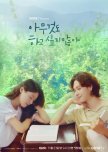
Loved it, Untill Episode 9
Sometimes I wonder if Kdramas have an allergy to happy endings, the element of loss can be very powerful in a drama, however when overused or implemented in a way that creates unnecessary forceful emotions for the audience --I find it frustrating.What I enjoyed about the drama, up until episode 9, was the balance they had between loss and self-discovery, how loss can lead you to rethink the trajectory of your life and then also to use grief as a measure of satisfaction or dissatisfaction in one’s life.
For me, the main character Yeo Reum was perfect for this depiction of loss and discovery. The drama begins with a loss of a mother, which starts an emotional, but healing journey, for Yeo Reum. This loss leads Yeo Reum to head to the countryside, where we are introduced to a new set of characters that will later influence each other's lives. The townspeople have also experienced loss and are forced to cope with it differently. We have Dae Bom, Dae Bom, and Jae-Hoon who each have a different form of loss within their lives. It's these well-written characters who, without the need for the audience to know immense details, are able to connect with each other on an emotional level.
To me, the cope with loss, and self-healing, began to pick up and continue to help the characters grow through her new friendships (dae bum, Bom, yeo ream, and Jea Hoo) where they found happiness within each other, with their healing at the climax, and the most fun in the show, the death of Bom’s grandma occurs, which I found unnecessary and a plot element that really didn’t need to be there.
The drama did very well to move away from unnecessary drama, giving a fresh outlook on healing and love. There was never any misunderstanding, like you see in many other dramas, between the main relationships. To me, my love for the show stems from each character’s ability to, not forget about their loss but to, live intentionally in the present moment. I enjoyed that, after a major loss from Yeo Reum, the show took a tonal shift towards happiness, especially through friendship. These friendships are central to the show: Yeo-Reum & Bom’s sisterly bond, Bom’s Grandma & Yeo Reum’s motherly bond, and Dae Boms & Yeo Reum’s romantic bond. It’s these friendships that, throughout each episode, increase in strength. As each character opens up to each other as they all begin to heal. That’s why, the death in episode 10 took me by surprise, in a negative sense; all the healing, through bonds of friendship, backtrack because of another loss, therefore, clouding the well-established theme of moving forward.
The drama itself is built upon growth and open communication between characters and yet these established growth patterns seem to disappear in light of Bom’s Grandma’s death. The characters, instead of coming together to heal, begin to separate and lack the open and caring communication that held them together before.
I felt that the show tried to take on too many subplots and got lost within the subplot of the mystery of the billiard hall. I enjoyed this subplot--only in the beginning, as it was an anchor for Dae Beum’s trauma. Initially, it was well-balanced because it didn’t take over the show and set up a means of understanding Dae-Beum’s past and connection to the town. However, with the death of Bom’s Grandma, the mystery takes the spotlight and put the themes of self-discovery and friendship into the shadows. I personally didn’t like this tonal shift and ideally, I would’ve wanted the drama to continue towards a happy tone, where the grandma doesn’t die and the growth of each friendship is delved into further. I decided to stop watching after this point, even though I’m sure the drama does get back on track, later on, about the friendships, however to me the unnecessary death was a frustrating factor that I couldn’t get past.
Despite my gripe with the death of Bom’s Grandma, I still loved the former episodes and wanted to touch on a few other factors that made this drama stand out. The unspoken dialogue between Yeo Reum and Dae Bom is so well written that their relationship is a perfect example of how to efficiently display chemistry without an excess of physical display. They have an unspoken love, that translates into deliberate actions, such as doing hobbies together, and sharing loving glances and smiles; they both know they love each other, without any drama or unnecessary elements to get in the way of their emotions. They both pursue each other in such cute and subtle ways that make their delicate relationship so fun to watch.
I also loved how the drama took a lens that focused on a woman’s perspective, that of Yeo Reom. She didn’t go to the country to find love, rather she begins her adventure for herself and to better understand her present needs. Yeo Reum doesn’t set any expectations, for her self-discovery, but rather allows herself to indulge in her individual happiness. The Yeo Reum in episode one and the Yeo Reum in episode nine are starkly different. In episode one we see how she doesn’t stand up for herself and clings to an emotionally abusive boyfriend. We see a tragic version of Yeo Reum who has sacrificed her “I” to the point of transparency. She can barely distinguish her wants and needs, from that of those around her. In the beginning, she lives for others, rather than living for herself. Yeo Reum, in episode one, is a burnout woman that is a product of her toxic environment,
A part of self-discovery is when a person begins to understand that they no longer need to live as a ‘we’, such as being in a relationship or appeasing a boss, but rather when one lives to uphold and stay true to their ‘I’ while also making room, when needed, for the ‘we’. In this way Yeo Ream discovers herself first, then after she is adamant on focusing on being herself, she naturally attracts friendships along the way. By staying true to herself she is not selfish, but solidifies that whether, her coming to Angok, she finds connections or not, she won’t sacrifice self-discovery and understanding of her desires.
We see Yeo Reum change from a woman who initially lived on the validation of others to one who is able to validate her own self-worth. When she decided that she no longer needed the acceptance of others, and puts herself first, she then lends herself to different forms of love. The drama represents the common motto: for others to love you, you must love yourself. By the end, Yeo Reum has learned to love and accept herself unconditionally. I truly loved Yeo Reum’s character, because, although she is in a relationship with Dae Bum, she makes it clear through her actions that she does not need a romantic relationship to survive and that she is completely capable on her own. The opportunity for a healthy romantic relationship presented itself after Yeo Reum’s acceptance of her self-worth. The relationship was an added bonus, not a crutch.
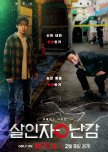
Same issue with so many dramas, first episodes are great then it plummets in plot quality
I'm getting so annoyed with high-budget shows like this that just end up being too typical after the first three episodes. I was seriously hooked in the first couple of episodes, I felt like I was watching a thriller with new plot elements, and then it fell into a typical vigilante sort of story, which isn't bad per se. but when it repeats the same cliches (good people killing for justified reasons) I'd rather there be more depth somewhere else, and I found that it lacked a certain character depth to establish that. I did love the main character, and they built him up well, but everyone else around him felt so insufferable and flat, they weren't as well-rounded. Most of the background info, of the main antagonist (the cop) arises in the last episodes. They should have established the motives sooner. I also wished they played more into the bromance between our main character and Roh Bin, instead of killing him off and having him betray him, I wanted them to be more like brother who relied on each other when they had no one left to turn to, but of course the writing falls short in that relationship too.To be honest I lost interest after the main villain appears, the previous 'hero' who turned rouge. After that point, it became a boring chase and lost its lustre. I'm getting so frustrated with kdramas becoming a disappointment after the first few episodes. They have phenomenal acting, cinematography, and music, only to ALWAYS fall short in writing. It's so annoying, they have the opportunity to make a well-rounded plot, yet choose to go the easier and safer route by not delving into more nuanced plots. It's always so predictable.
I do want to mention the cut scenes though, whoever the editor did an amazing job, they were so beautiful to watch. I wish I could find a drama that actually keeps up the initial pace they set in the first episodes.
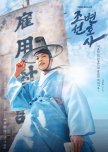
So disapointed in the ending arc, too many misunderstandings
I initially loved most of the episodes, for me I always love when there's an over-arching plot that hangs in the background of the show, in this case, the revenge element for his family. Each episode has a new case for our main character and its fun to watch. However, it slows down in the ladder half and is dragged down by misunderstandings.I fell in love with how fast the romance was, between our main characters. But again in the ending arc it's filled with misunderstandings and the second lead getting in the way. It was so frustrating to watch. I don't want to spoil what exactly it was, but I would not recommend this drama because it just changes so much from the beginning. Once again disappointed by a drama that hooked me in the first episode but could not keep its pace in the end.
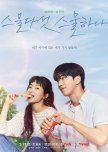
A Beautifully Cynical Portrayal of Youth and Emotions
An emotion, whether it be a sweet or sour one, eventually succumbs to the nature of time. A memory solidified in the past, that can no longer be tapped into, once a passionate emotion becomes a far-off glimpse into the past. The stance taken in 25-21 is that drunken youthfulness eventually sobbers up and becomes part of the ephemeral nature of life and that one must take the breakups and sadness in life and continue to move on.One of my favourite lines in the drama, and one that sums up both my love and quarrels with the drama is, "We only love each other during our good times, but we become a burden to each other in our low points". The relationship between Baek Yi-Jin and Na Hee-Do initially starts off as a promise to "only be happy together" however this exact promise and the inability to rise above this promise is what leads to the eventual breakup.
Throughout the drama we see Hee-do and Yi-Jin develop a relationship that is greatest than friendship, they fall in love and spend the beginning of their young adult lives together. The issue between the two is not their lack of opportunities in meeting with each other, but their lack of communication. Hee-Do despite being in pain at Yi-Jin's avoidance of her (by solely pursuing his career) keeps these conflicts to herself and never truly expresses her discontent towards Yi-Jin until their eventual breakup. Yi-jin suffers this lack of communication to a greater extent than Hee-do, where he rarely opens up to Hee-do and continues to keep his issues bottled up (tighter than the alcohol corks on the bottles he gobbles down), creating a rift between the two where they only ever show the good parts to each other, rather than sharing and growing together through their shared grievances.
I view this drama through a more cynical lens, where the ending is not one of happiness and moving past one's miseries, but rather one that demonstrates the results, for couples, when they lack proper communication. The way that Yi-Jin and Hee-do gaze at each other, and think about their past (in the 2009 interview) is not one that is of a couple who has moved on. Instead, our two protagonists look at each other with deep sadness behind their words. who were unable to work together to solve their issues together. I do not think Hee-do will truly be happy without someone like Yi-Jin in her life (and vice versa). I've seen the comment that the couple's relationship was 'realistic' however the extent that both Hee-Do & Ye-Jin go for each other was beyond realism from the get-go. Their "realistic" ending is not realistic, but rather tragic. Their breakup is a tragedy, one where the missing piece to their relationship was open communication about their grievances.
Hee-do, we see at the age of 41, has let go and forgotten most of her precious memories with her main friend group, as seen with her forgetting of the beach memory. This was a memory which not only was documented and aired on TV but was also a first for her--her first school trip. For hee-do to forget this moment leads to her tragic departure from Yi-Jin because had she truly gotten over Ye-Jin she would've been able to look back at that memory with a sense of bittersweetness, instead, she needs, to forget these moments to truly erase--not get over-- Yi-Jin. First and Last memories are not easily forgotten, for Hee-Do to forget her first school trip exhibits her mid-life sadness. Erasing someone and healing from someone are two different things and from the Hee-Do we see in 2020 we're given a woman who has completely let go of her past in an unhealthy manner. To convince herself that she is happier without Yi-Jin, she has to forget the precious moments she has with him.
In a 65-61 future I see both Hee-Do and Yi-Jin stuck in their denial, that they were not meant to be with each other, and that they made the right choice. They, in my opinion, made the wrong choice and must live with that choice for the rest of their lives.
It's the tragic and frustrating nature of this ending that also makes the series more memorable, we see a glimpse of a couple and what they could have had together.
Overall, despite my grievances with the ending, I truly loved this drama--especially the character development between the main friend group (the only expectation is the development of Yi-Jin to take on a job without discussing it with Hee-Do, which was just plain dumb). We grow with the characters and it shows, because it hurts just as much when we see them in pain and not together.
I would describe this drama as an extreme roller-coaster of emotions.

Laughable Ending and a Waste Potential of a Story
A sister, excitedly on a video call with her twin brother, suddenly watches unknowingly as her brother is murdered in broad daylight--pushed from a school window and plummeting to his death. This initial hook in the first episode got me excited about the potential of the plot. I was not only empathizing with the sister, who had just experienced a severe loss and is now on the hunt to find her brother's murderer.Major Spoilers:
One of my main issues with the show is that there were so many irrelevant factors, Ji Sooheon's brain tumour becomes a useless fact that is only used as a way to make the audience sympathize with his character faster, the loss of his mother is also one I found quite random. Then we have one character who is pregnant, and once again adds no relevancy to the plot.
However I was able to accept all of these if the ending was satisfying, but instead, we get a cop-out ending with the classic case of split personality. It really felt disrespectful to the audience to have this over-used plot element as the 'climatic' ending. I felt like I wasted my time with the show, after all the build-up they also kill Ki Oh Sung in the ending, which felt so rushed and not needed.
Plus why in the world is a man with a brain tumour being hit dozens of times in the head and coming out practically unscathed each time, it was as if he was invincible and it made me not want to take the plot elements seriously. The whole show, near the second half, felt so lacklustre and rushed. Most of the 'clues' and 'evidence' we are the audience are given as basic boring ones like the murderer being left-handed and using his left foot to commit the murder.
I really had high expectations for the drama, in the first half, which is why I'm angered by how the plot ended up. It would've been better to have Jaebum not lose his memories and join Chanmi & Sooheon's group, then we as the audience get attached to Jaebum only to find out later that he is the murderer and was only using them to cover up his murder. I would rather they played into Jaebum being a pure villain, rather than a half-baked split-personality villain.
There were so many poorly written elements that made me frustrated with the show and honestly I regret watching it.

The Greenish Flag Male Lead and he's AI, he's so cute and loveable
I LOVED this drama so much, did not expect to like it as much as I did. I came into it thinking it was going to be a funny relationship between humans and AI and then I left with so many feelings of warmth for AI SHIIIINNNN. He and Sobong are one of the cutest K-drama leads.If I had the chance to pick a perfect super sweet AI bf, who looked as hot as Shin, then you bet I'd date him too. This drama was so much fun, you have to watch it with a grain of salt because it's not meant to be a literal/in-depth plot. Also, the actor for Nam Shin was so amazing, the way I hated human Shin, with a passion, but loved AI Shin. He even acted like a robot, but humanly, it was such a good performance.
It's funny how an AI+Human relationship had better character development and story, and side characters than most K-dramas I've seen. I would HIGHLY recommend this drama if you're looking for a fun drama with some serious tones, you're going to love the main leads trust me.

Despite the Amazing Acting it was Very Predictable and Lacked Depth for Side Characters
The first three episodes of this show were amazing; they had me hooked and excited for the ending. However, it became so predictable. I think the issue with revenge dramas is that they fall into two categories: the first is revenge taken in the middle of the plot, and the second is revenge taken at the end of the plot. This drama is the latter, and because the characters and journey overall lack in plot development, it becomes very predictable. I honestly did love Jiwoo, but I found that Pildo's character, and everyone else around her, lacked any depth and really just rushed the romance in the final episode.I wish the plot element, of her dad being a cop the whole time, was revealed in episode 4 (rather then ep7), and then the rest of the plot could've turned into Pildo and Jiwoo taking revenge together. Instead, they kill him off after a rushed romance. It bothered me so much because everything else in the drama was so well done—especially the acting and cinematography. Han So-hee blew me away with her acting; she's genuinely so amazing, and Bo Hyun-ah was a perfect actor for Pildo. Unfortunately, the plot was dragged on despite being 8 episodes. It's a shame because had the plot been up to par with the acting and cinematography, then this show could've been a masterpiece.
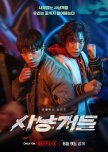
Entertaining Action Drama with Great Bromance
This was a well-rounded mini-series that used its eight episodes to create a well-paced action plot that was very entertaining to watch. Mini-series tend to be my favourite K-dramas because they, the good ones, excel in pacing; creating a story where we as an audience have a clear end goal that we want the main characters to achieve.The first episode itself is gripping and had me hooked the whole time, within one episode the main characters, and great friendship, are introduced. From the get-go, I was rooting for Woo-Jin and Geon-Woo because they had personalities that complemented each others strengths well. A clear motive is even set for the main characters by the end of episode one with the main villain and company as the antagonists of the story.
When watching this show I was reminded of John Wick, and yes I am a sucker for those movies, and the fight scenes within those movies. The shifting angels and intense shift of close-up to full-length shots make the scenes very immersive and feel realistic. The boxing by both Woo-Jin and Geon-Woo felt very smooth and I was never taken out of the action scenes. Each punch and fight is strategic and effective, the two characters do not engage in unnecessary fights. The element of a logical and calculated fight made the scenes feel intense but also exciting. Throughout the drama the fights, as the main leads get stronger, also intensify and create a sense of power towards reaching the end goal of the drama.
If you're looking for a drama that has great action scenes, while also maintaining a lovely friendship that grows stronger, then this drama is perfect for you!
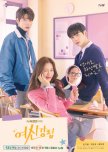
Was Great until the Last Two Episodes
True Beauty starts off as a show with a good balance of entertaining and lighthearted highschool angst with a backdrop of mainstream issues faced in school, such as self-image, understanding love, and bullying. I enjoyed how the drama touched on real-world issues in a way that wasn’t hard to stomach. My highschool self would’ve love this drama, and to be honest this drama had the potential to be so much more. However there is a tonal shift that occurs in episode 14 that completely ruined, and changed, my opinion about the drama.My verdict for the show is that episodes 1-14 were highly enjoyable and had a great balance of drama, angst, and fun, but after episode 14 it goes downhill when the lightheartness of the show disappears and instead is filled with only drama and angst. The characters even shift, which created a bunch of characters who don’t feel true to their, episode 14, prior selves.
For me, the Han Seo Jin after episode 14 was disappointing. I had hoped he would get over his highschool love and move on, but instead you can see that he has not moved on. And it takes until the last episode for him to fully move on. The love triangle after episode 14 becomes uncomfortable to watch and is no longer fun.
I noticed that one overused plot element is that characters in the show only mend their relationships in relation to a an occurrence of a negative accident. What I mean by this is that, when there is conflict that needs a resolution the drama will introduce an illness or trauamtic event. These negative accdients have to happen before the character talk openly, so it never feels like the characters have open communication. For example, Seo Jin and Soo Hoo only talk about their past, once they have the car accident and are forced to share a room-- and I loved this element, however what I didn’t like is when this same element is used to mend Soo Hoo and his father’s relationship. The father having an illness felt very unneccessary. The subsequent move that Soo Hoo makes to America also feels unneeded. It would have been okay if Soo Hoo didn’t break up with Ju Kyung, but the break up was the straw that broke the camels back for this drama. It was very out of place for Soo Hoo’s character. One of my most hated elements of a drama is when long-distance is used as an excuse to break up, instead of having open communication between the two characters.
Soo Hoo is a character who gets closer to people through hardship, so his distance with Ju Kyung, after his move to America, does not make sense to his character, and instead creates anger for the audience wehre we have to suffer an undeed plot element because the writers thought it would be a good idea--and it indeed was not.
My disappointment in the show stems from how much I actually enjoyed it in the first 14 episodes that is why it's so heartbreaking to see the lazy writing the drama takes in the last two episodes.
I would recommend only watching up to episode 14 and skipping the end. The first 14 episodes are filled with fun youthfulness and the struggles of youth, but in a tolerable light-heartend tone that makes it enjoyable for the viewer.
My favourite character is Ju Kyung who stays true to herself throughout the drama. She uses her love for makeup to transform her life, but in a positive manner. At first she is sure that she is unworthy, but her character develops and she releases that makeup is not a clutch but an asset.
Soo Hoo, up until episode 14/15, also has great character development. He becomes more open about his struggles and emotions and begin to rely on Ju Kyung and Seo Jin for help when he is feeling down.
The way Seo Jin is portrayed makes me respect him, he remained in conflict over the ethical nature of his relationship with Ju Kyung, when she was dating his friend Soo Hoo. Initially he wanted to steal her from Soo Hoo, but once he lets go of the resentment and sees Soo Hoo as a friend he ends up growing as a character. Seo Jin’s character is a positive contrast to Soo-Jin, who destroys all her friendships over her crush with Soo Hoo.
I genuinely feel so much frustration over the last two episodes, even though the characters physically age they seem to mentally regress. In an ideal world, the way I would’ve wanted True Beauty to end is with Han Seo Jin, during his highschool times, learning how to grow from the difficulty of his unrequited love and fully moving on. I wanted to see Soo Hoo have a healthy covnersation with his dad, without the need of an illness to force him to have that conversaion. And for Soo Hoo to fully commit emotionally to Ju Kyung, so that the break-up would’ve never happened. My whole love for the show shattered with that breakup by Soo Hoo, and despite the happy ending, it feels soured because of the messy writing for the ending.
If you were also disappointed by the show and need a better drama to watch, you should try Something in The Rain, its much more heavy-hearted but the way the characters deals with their conflicts is very mature and satifsying. Or you could go back to our OG Crash Landing on You for a nice all-round drama.

Absolutely Disapointed in the Second Season, Lacks Plot
I was so excited for the second season, but wow I'm just frustrated now and won't be finishing the show. The first three episodes are so slow and lack all the good traits that made the first season amazing.What made the first season so amazing was the nuance they put into character development, each episode usually added or progressed a character so that by the end we loved every single one. In this second season it really feels like, instead of continuing to develop the characters, they just bangwagged off of the writing in the first season and slacked off in the second. Even the new characters introduced lack any connection to us as the audience.
The deaths feel so forced and random too, in the first season although it was difficult each death made sense, whereas in the second season, it felt like they just killed characters willy-nilly and it's annoying. What was the point of developing them in the first season just to kill them off in the second??
The series lacks a plot, things happen without explanation, which was fine in the first season because the story was character-driven, and had a clear end goal (to stay alive until help came), but now in the second season, it just feels like each episode is the characters walking around from place to place and then a random fight, that has no real tension, occurs.
They have such a cool theme: monsters aren't the enemy its humans, yet they only try to 'progress' this element by saying half-hearted lines like "I'm human", "I'm a monster", "I'm not the enemy". Why not have made the first three episodes all about understanding the monsters and seeing in depth how they're not as harmful as they may seem. They should've gone more into that, instead of the random filler they have.
I'm glad I watched season one last month, and wasn't unfortunate enough to wait the years for this second season, because I only waited a month and I'm this furious, I can't imagine how other people feel having waited so long. Such wasted potential in my opinion.

First Two Episodes were Amazing, then they ruin it with misunderstandings
I was genuinely taken aback by how well the first two episodes were written. It was such a unique plot that dealt with child abuse well. For me, it all went downhill when Ki-ho didn't reveal who he is, and we get those generic altruistic main character plots. On top of that, we have the cliche of memory loss for the second lead. I wish they had made the second lead just a friend, I didn't like how they made her interested in him and then made him distant with her in the second half. It's like after he realized he wasn't interested, he stopped being Moka's friend too.I understand what the drama was trying to do, by having Ki-ho conceal his identity, but by doing so he just sets Moka up for failure and a need to find Ki-ho, it would've been so much better had he just told her in the beginning, it felt like unnecessary drama. I'm so disappointed in how the show went after episode 3. I still finished the drama but it just lost its luster and became a very stale and average drama.

